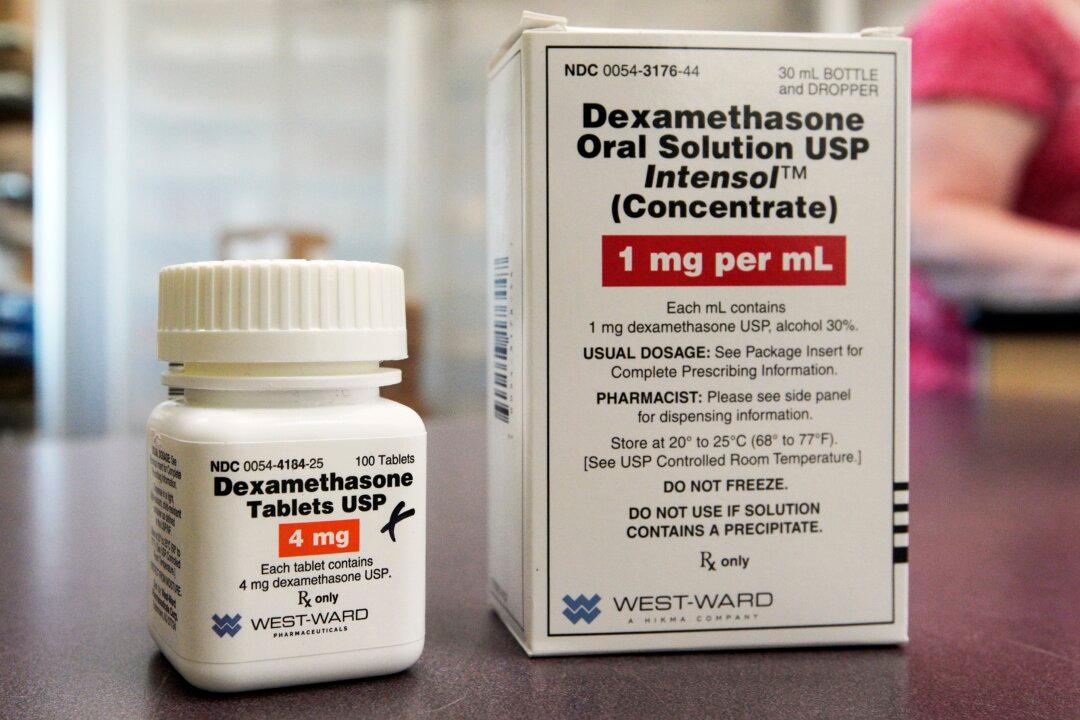A cheap steroid that’s widely available may help patients with severe cases of COVID-19, the disease caused by the CCP (Chinese Communist Party) virus.
Researchers conducting a controlled trial on various treatments said in a preliminary report released July 17 that dexamethasone appeared to help patients recover from severe COVID-19 cases.






